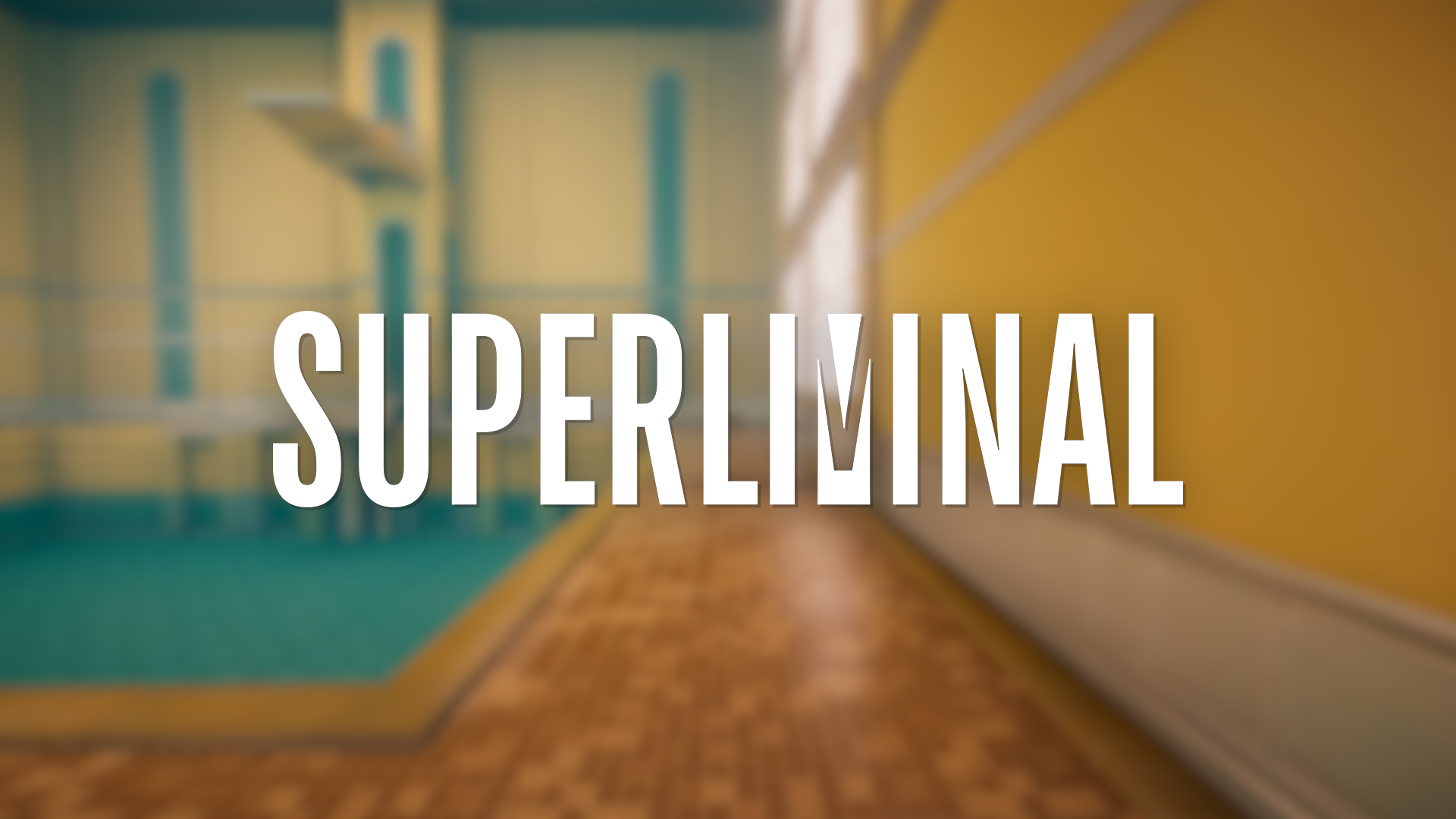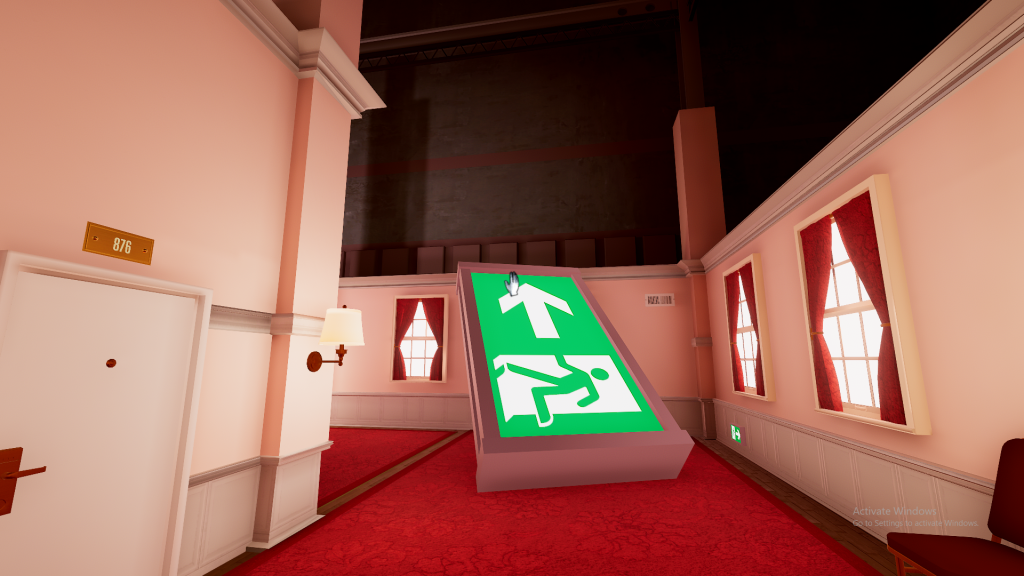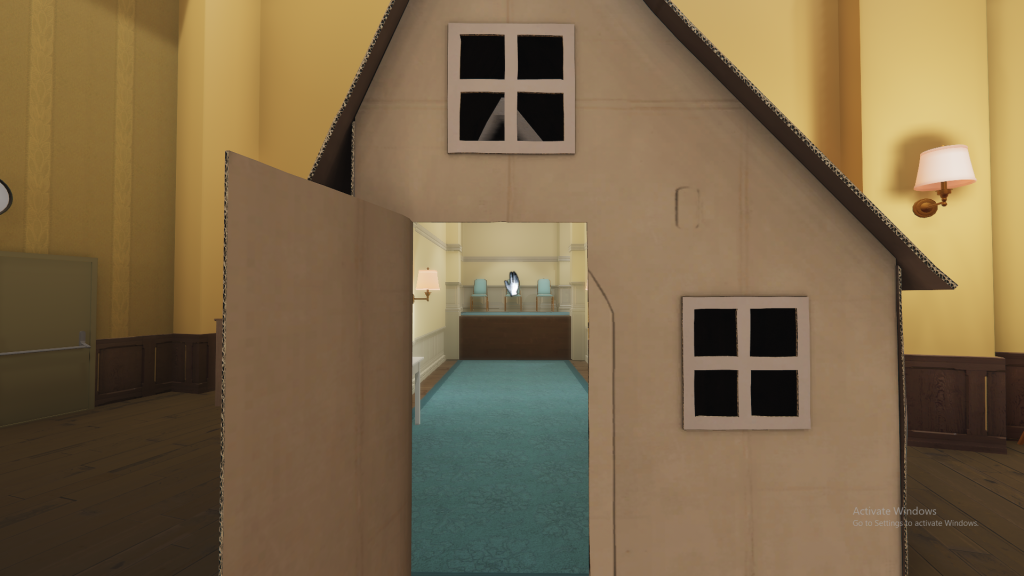Let me preface this review with this - I am not good at puzzle games, and Superliminal is very much a puzzle game. In fact, I’ve mostly avoided the genre as it's typically not my speed. Simply put, I’m not extremely interested in puzzle games. If you asked me to name one from the last decade I’d answer with Professor Layton, skipping over many other fantastic titles that have also come out.
That may be why I was so surprised when I finished Superliminal in just a couple of sessions, having enjoyed every minute of it. It’s not your average puzzle game though as it’s not very complex and it leans heavily on a narrative delivered through radios placed at each level. However, what makes Superliminal truly unique isn’t its gameplay or story, but rather the way it uses both to impart a clear-cut message onto its player.
In Superliminal, you play as someone who has signed up for an experimental form of dream therapy. The entire game plays out in the character’s subconscious, which led me to question the things that I would find lying around. Chess pieces, dollhouses, and soda machines clutter this strange, 90s office-themed dreamscape, but they all have their purpose. Most of these random objects feed into the game’s mind-bending main feature - changing the size of something depending on your perspective.
[pullquote]"What makes Superliminal truly unique isn’t its gameplay or story, but rather the way it uses both to impart a clear-cut message onto its player."[/pullquote]
It’s a difficult concept to explain, so here are the layman’s terms. If you pick something up, it’s always going to be placed against the surface furthest from where you’re looking at. However, the item remains the same size from where you saw it. If you pick up a can of soda that’s 2 feet away from you and place it at the end of a room, the result is the biggest can of soda you’ve ever seen. It takes a while to understand the rules of this mechanic; how things can be placed, how to change their size, and how objects react to one another.
One of the things I really appreciated about Superliminal was this laissez-faire approach. At no point does the game tell you what to do, how its mechanics work, or what approach may be the best. Instead, you’re thrown straight into the mind-bending halls of your character’s brain to sort it out. For most puzzle games, I would have found an issue with this. Toying around with a game’s mechanics is easy for me when it’s clear what they are, but going in without knowing anything is a different story.
One room, in particular, stumped me - the door leading out of it was a brick wall, but cracks in the room’s walls let me peek outside and see the exit. It took me about fifteen minutes to figure out the walls could be knocked down with a large enough object. The frustration I felt with the puzzle was immediately replaced with sheer joy and satisfaction when the solution finally clicked, which was a common sensation I experienced playing the game.
This hands-off approach is one of the many things about Superliminal’s gameplay that ties into its narrative. Over the course of the game, you’re directed by Dr. Glenn Pierce, who attempts to guide you as you move from one dream to another. However, it’s important to remember that your character is undergoing a special kind of therapy this whole time. In it, the good Doc fills the role of your usual psychiatrist, while the game’s mechanics are the tools being taken away from this extensive, trippy session. And like the therapy I’ve experienced, it’s up to you to use those tools when situations arise. The therapy motif of Superliminal extends even to its name, which is based on the word "liminal" which relates to the transitional point of a process, or change. Simply put, over the course of the game, your character is in the midst of a process of change.
This all ties back to the main fixation of Superliminal - perspective - which influences every part of the game. As if messing with how handled objects react wasn’t enough, the game is filled with tricks of the eye, ranging from your classic room that gets smaller the further you go into it to hallways that feed into themselves. Superliminal does something a lot of games are afraid to do - it abandons the rules of reality. Even in Mario game,s what goes up eventually comes down, but that’s not always true in Superliminal. Directions become subjective, distance becomes meaningless, and the laws of physics are often thrown out the window.
Taking away these limitations left the game with a distinctively unique art style, especially towards its end. I won’t detail the scenery too much as it’s a pleasure to go through if you're unaware. I will say though that the ways that light and dark are used lead to some gorgeous and clever puzzles. I had to yell after walking through the shadow of a filing cabinet into the next room because it was just brilliant.
[pullquote]"Superliminal is more than worth your time."[/pullquote]
Of course, these artistic choices come with their fair share of downsides. Those with vertigo, or really any inner ear problems, will likely want to stay far away from Superliminal. I even experienced mild nausea on one occasion when I was tricked into thinking up was straight ahead. Likewise, the game hasn’t quite got its physics figured out. It turns out that throwing the laws of physics out the window comes with some drawbacks. I ended up falling through the floor, sending myself flying, or sending objects flying multiple times during my nearly three-hour-long playthrough.
What may have bothered me the most out of this shortlist of grievances was Superliminal’s playtime. I enjoyed my time with the game, and as it reached its end, with its dreamscape reality destabilizing more and more, I found myself hoping the end wasn’t coming. But as the game delivered its final and most blatant messages and the credits began to roll, I figured it was for the best. Although it's unlikely that I revisit the game, I felt that in my time with it I had experienced everything I was meant to.
Superliminal is the first puzzle game that I’ve played in a long time and I came away from it genuinely wanting more. Everything about it, from its innovative puzzles to its surrealist art style, and even its unusual soundtrack, is exciting. Even when the game floundered, when puzzles weren't clearly laid out or the game's physics engine had a conniption, my annoyance was often quickly replaced with another more positive emotion. I can't stress this enough, as a puzzle game fan or not, Superliminal is more than worth your time.
Superliminal
- Platform(s)
- PC
- Developer(s)
- Pillow Castle Games
- Publisher(s)
- Pillow Castle Games
- Genre(s)
- Puzzle



